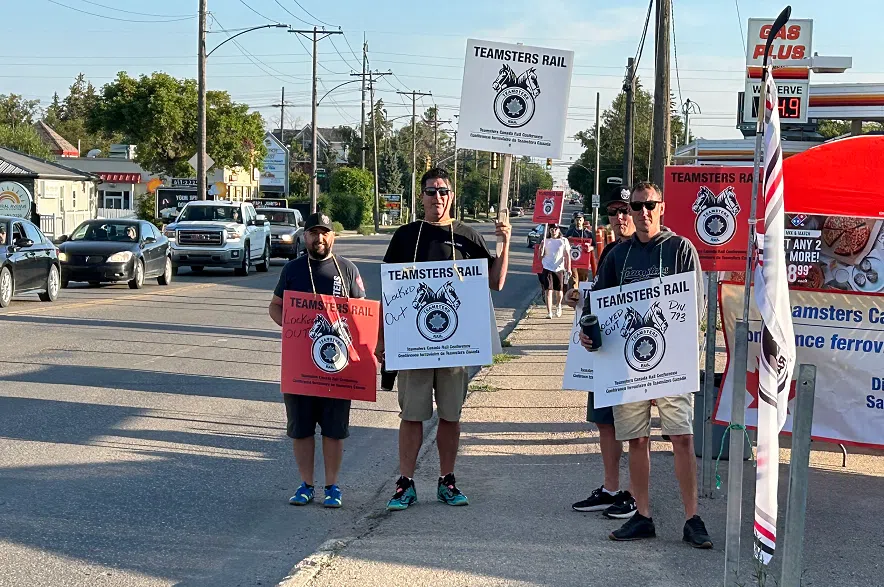Many thought it was over, but the railway work disruption at Canada’s two largest railroads isn’t ending just yet.
The Teamsters Canada Rail Conference union served 72-hour strike notice to CN on Friday, despite the fact that the federal government ordered an end to the railway work stoppage on Thursday, sending the matter to arbitration with the Canadian Industrial Relations Board. The union says it intends to start the strike at 10 a.m. Monday.
The stakes are high for Saskatchewan, as many producers require reliable rail transport in order to get their crops to market. Agriculture Minister David Marit estimated that a disruption at CN and CPKC could cost the provincial economy hundreds of millions of dollars.
READ MORE:
- The latest in the labour dispute at Canada’s two biggest railways
- ‘We don’t want to be here’: Sask. CPKC workers frustrated by rail lockout
- Federal Government is stepping in to get trains moving again
According to Steven Seiferling, a labour and employment lawyer with Seiferling Law in Saskatoon, arbitration by itself does not stop a strike, and the union was acting within its rights when it served the notice.
Seiferling joined the Evan Bray Show on Friday to discuss the latest developments in the labour dispute.
Listen to the full interview with Seiferling:
“The Teamsters Union wants to argue in front of the board about whether or not this is constitutional,” he explained.
“Right now, the board has not directed anything. Until the board actually directs something, the CPKC strike can continue and the Teamsters can give the 72-hour strike notice, under the Canada Labour Code, to CN.”
Seiferling said the federal government’s use of section 107 of the Canada Labour Code, sending both parties into arbitration, can’t immediately stop a strike.
“Section 107 of the Canada Labour Code allows the minister to direct the Canada Industrial Relations Board to do something,” Seiferling said.
“So what the federal minister has done here is he’s directed the board to do three things. Send the parties to binding arbitration – that by itself doesn’t stop a strike. The second thing he’s directed them to do is to force everyone back to work. The third thing he’s directed the board to do is to say the terms and conditions in the current collective bargaining agreement — the one that’s expired — continue to apply until binding arbitration is concluded.”
The union believes it cannot be forced back to work, he noted, because of the rights that are protected by the Charter, including the right to strike and the right to collective bargaining.
However, if the board decides to follow through with the federal government’s orders, the situation would change, and the union would have to follow that direction. If it doesn’t, Seiferling said the strike would become illegal.
“What I think would be more likely to happen is they they would follow that direction, and then they’d appeal,” Seiferling explained.
“And then they’d look at advancing this question of whether or not this was constitutional all the way up to the Supreme Court of Canada.”
There’s another option the union could pursue as well, the labour lawyer noted.
“They could also seek what we call injunctive release,” he said.
“They could go to the courts and say ‘The board has ordered us to stop the strike action. We don’t think that the board’s order is constitutional. We’d like you to suspend that to make it so it doesn’t apply until the question is finally addressed so that we can continue the strike.’”
Seiferling said he wouldn’t be surprised to learn the union’s legal team already has appeal and injunction filings ready to go.
An illegal strike isn’t anything new, according to Seiferling, but it could come with heavy fines for the union.
“We’ve seen a number of organizations across the country, both provincially and federally regulated, go into illegal strikes over the years,” he said.
“I’m not going to guess on what they might do here, but they could go into an illegal strike position, which would subject them to damages and fines in billions of dollars on a daily basis.”
— with files from The Canadian Press and 650 CKOM’s Shane Clausing.
READ MORE:











